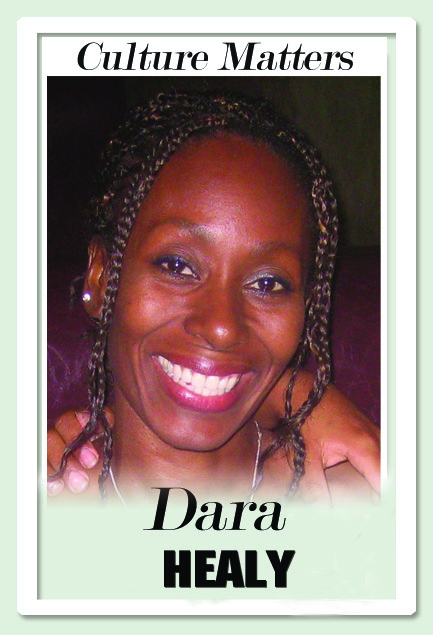Betrayal of the book bag

Culture Matters
THE CITY was in chaos. Protesters everywhere running and screaming, police in pursuit, tear gas, explosions. I fell hard. I remember covering my eyes from the tear-gas and glass from smashed store windows. I was kicked and shoved as people ran past me. I looked down and realised the cut was so deep, my left knee had turned white.
We were under a state of emergency. Black Power leaders had been arrested since earlier that morning. A massive march had been planned. Workers from all over the country would meet at the “People’s Parliament,” Woodford Square, and then head to Whitehall, the office of the Prime Minister.
The date chosen for the march was the anniversary of the 1969 bus strike that lasted for almost a month, when workers faced off against the ruling administration.
Back then, I was still in high school, an all-girls, prestige institution. My parents were quiet, religious. We were not rich but we managed. In school, there was at least one teacher who believed in the movement. Miss looked the other way when we established our Revolutionary Students group, secretly lending me books to share with the others.
After years of uncertainty, I have decided to share my experiences of 70. I have never spoken about that day when I fell in Port of Spain, eyes burning and petrified that this was how I would die. Lying there in pain, wondering if my quietly disapproving parents were right.
It was an amazing time to be a teenager. Across the country, revolutionary student organisations were publishing newspapers, spreading important ideas. For us, it was not revolutionary to demand subjects that celebrated our diverse society. Or to insist that schools reject their classist systems of divide and rule, where some students were encouraged to oppress and inform on the rest of us. Or to be allowed to wear afros if other students could wear their hair long.
We were told that we, the young people, were the future of our nation. At first, we did look in our book bags for inspiration, but then could not find what we needed.
We also wanted to look after our financial future. Many of our friends could not get work after leaving school. We asked for a wider choice of subjects, to include technical skills and subjects like typing and commerce. Worse, historically and culturally, we were taught little or nothing about local heritage. But we refused to let our miseducation alienate us from the people and the revolution.
Back then, we were so sure. I remember going with leaders of the movement to read literature and share ideas with communities like Mayaro and Rio Claro, far from our base in Port of Spain. Ordinary people welcomed us. We would sit under somebody’s house or talk by the light of a lamp post.
Black Power may have been fuelled by the disenfranchisement of a particular race of people, but its themes of racial pride, equality, respect, collective responsibility and controlling your destiny resonated with oppressed peoples everywhere.
Our book bags betrayed us by promising a future that they could not deliver. But 70 was about taking hold of our destiny. So whenever possible, we would cram into the “People’s Parliament” to be inspired by the leaders of the time like Daaga, Nunez and Kambon or listen to the poetry of Kwesi and the cultural performances organised by Eintou. We learned from revolutionaries like Kwame Ture, Fanon, James, Che, Angela Davis and Rodney. Black Power had become an ideology that was global in its dissemination.
After years of uncertainty, I have no regrets. We shifted the consciousness of this society, forced people to see us; I mean really see us. And that was important.
Do I feel disappointment that our schools and institutions of learning are still not grounded enough in our culture? Of course. And it hurts to think that many young people still do not know our names. It is hard that Black Power is not really taught in our schools, that our sacrifices and the lives that were taken have not warranted even a sign in the city.
So much pain, loss. The truth is, I would do it all over again, even the tear-gas and knee that never fully healed. If we refuse to tell our story, people with other agendas will decide our narrative. But read on, my book bag has many more secrets to share. And emphatically, power to the students and all power to the people.
Dara E Healy is a performance artist, communications specialist and founder of the NGO, the Indigenous Creative Arts Network – ICAN


Comments
"Betrayal of the book bag"